New Collaborations on Renewable Energy Emerge from Bi-national Symposium
UC San Diego and Kyoto University researchers presented on microgrid and fusion technologies
Published Date
Article Content
From better technologies for fusion reactors to new algorithms to control the grid, a meeting between Japanese and U.S. engineers at the University of California San Diego resulted in new collaborations on renewable energy research and in renewed strengths for collaborative fusion research.
The symposium’s theme was “The Future of Clean Energy Technology,” with one day dedicated to microgrid research and another to fusion research. The two-day symposium included keynote speeches by founders of successful startup companies, academic presentations aimed at creating research collaborations between Japan and the United States, and tours of UC San Diego's cutting-edge energy research facilities.
The event was a collaboration between the UC San Diego Jacobs School of Engineering, Kyoto University and the Kansai Startup Academia Coalition, with additional support from the Japan Society for the Promotion of Science.
“UC San Diego is a destination campus for innovation,” UC San Diego Vice Chancellor for Research Cori Peek-Asa said in her opening remarks at the event. “And innovation cannot be successful without partnerships.”
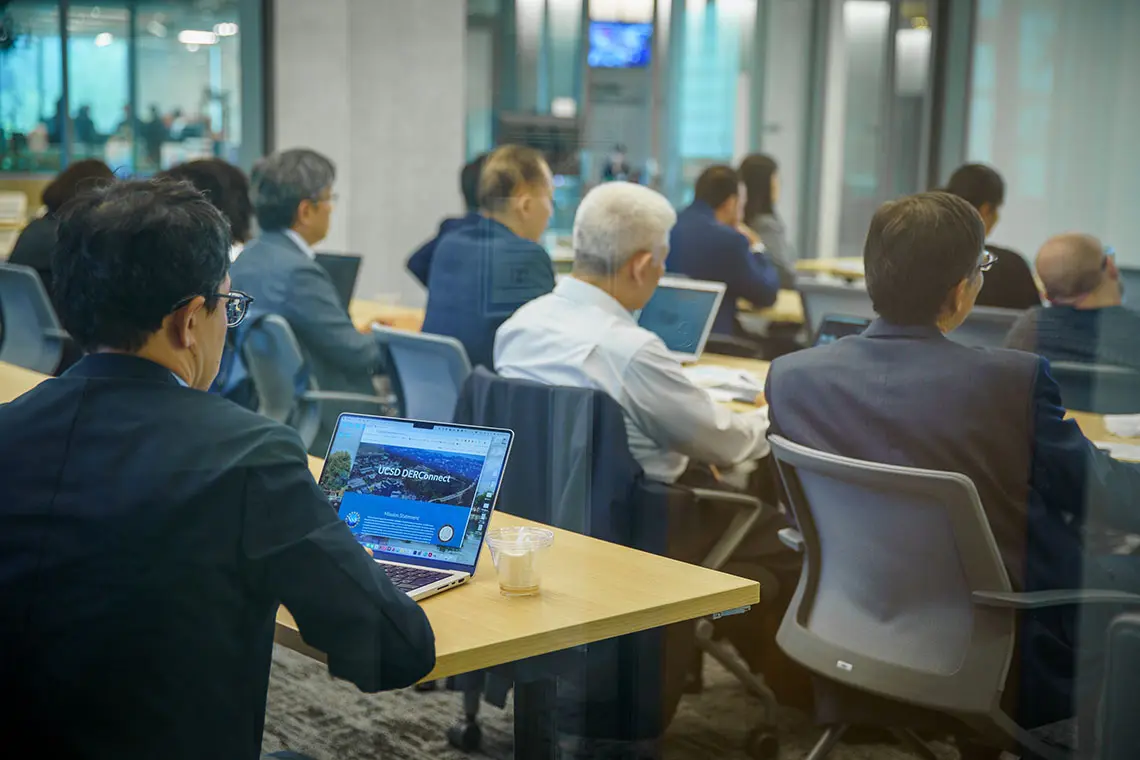
The symposium led to two new partnerships in microgrid research. Professor Prabhakar Bandaru in the UC San Diego Department of Mechanical and Aerospace Engineering will work with Kyoto University Associate Professor Jun Hirotani. Both aim to solve the issue of heat generation and waste in semiconductor devices.
Professor Jorge Cortes and his postdoctoral researcher Masih Haseli will collaborate with Kyoto University Associate Professor Yoshihiko Susuki. Cortes is an expert on algorithms for control of the grid. Susuki works on advancing digital technologies for electrical energy systems and microgrid development.
Clean energy is all the more important now due to increased demands from companies using artificial intelligence, said Albert P. Pisano, Dean of the Jacobs School of Engineering and Special Adviser to the Chancellor. “We’re going to see massive shifts in how energy research is going to be funded,” he said. “And we will need new funding models to fuel the work that needs to be done.”
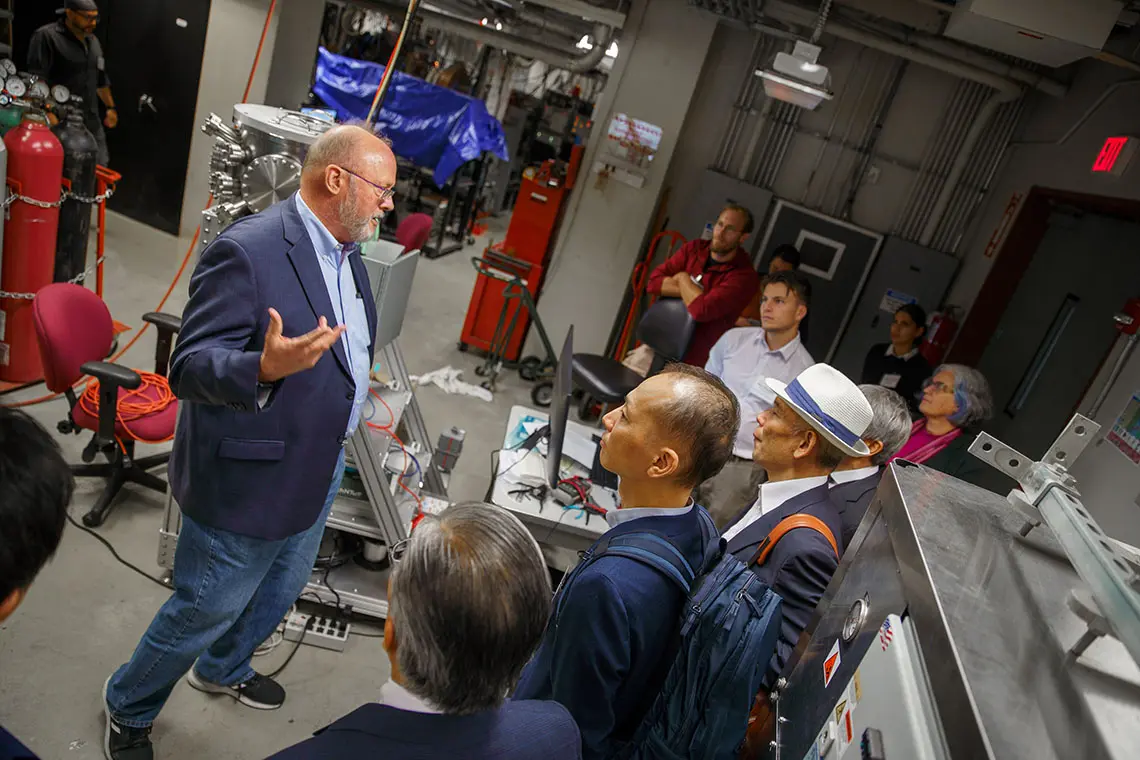
Related to developing new collaborative efforts to fund important low-carbon energy research, the Jacobs School recently launched the UC San Diego Institute for Fusion Engineering. In fact, fusion energy could become a future solution to this tremendous increase in energy demand for AI.
“We are not running out of resources, or fossil fuels, but we are running out of carbon budget,” said Satoshi Konishi, CEO & Chief Fusioneer at Kyoto Fusioneering Ltd., Professor Emeritus at Kyoto University and Chair of the Japan Fusion Energy Council. “Fusion can provide the alternative technology we need.”
Konishi cautioned that fusion power plants would likely not be on the grid until the 2040s, even though the market for fusion devices is already active. Many different design concepts for fusion reactors are competing. Investors will decide which ones move forward. Kyoto Fusioneering is focusing on how to translate the power produced in fusion reactors to energy that can be used on the grid.
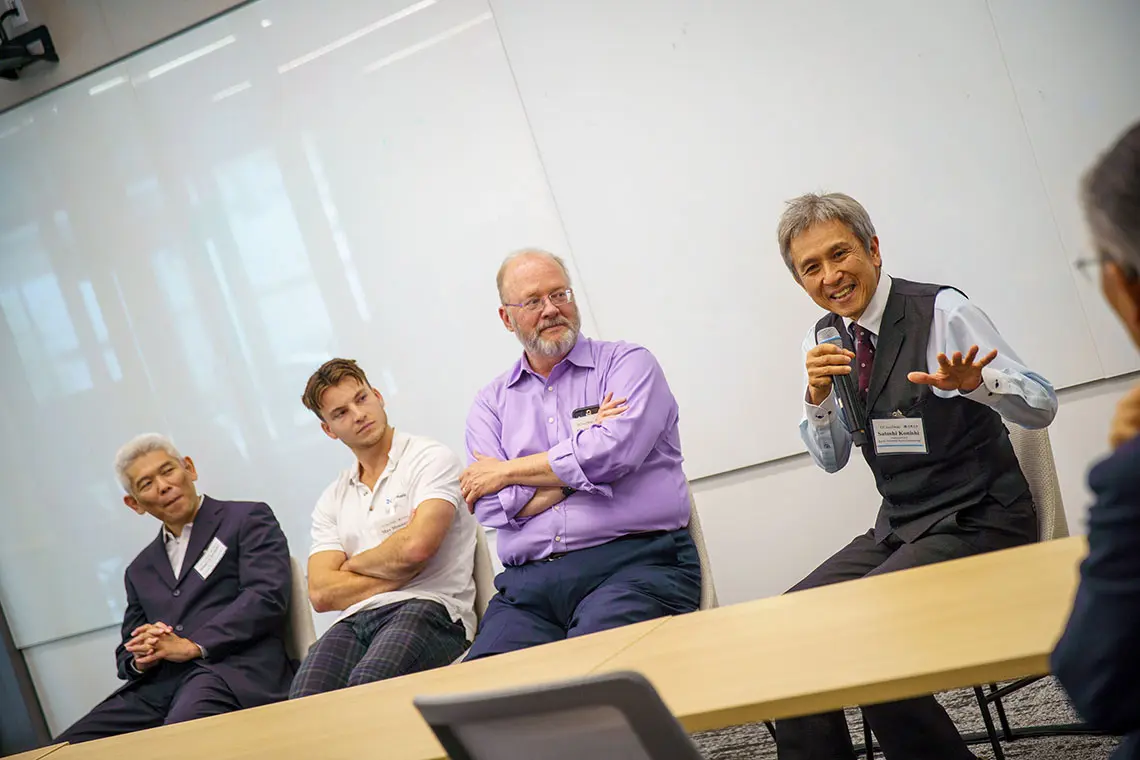
Two different technologies are currently under development to generate fusion energy. One, known as magnetic confinement, relies on powerful magnetic fields to drive atoms to fuse. The other, known as inertial confinement, relies on powerful lasers. Japanese company EX-Fusion focuses on the latter. The company’s CEO, Kazuki Matsuo was a postdoctoral researcher at UC San Diego. “We are working to accelerate the commercialization of inertial fusion technologies,” he said.
After the talks, the Japanese researchers got a tour of UC San Diego’s fusion labs and a tour of DERConnect, the campus’ testbed designed to help utilities integrate distributed energy sources such as solar panels and EV chargers, into the grid.
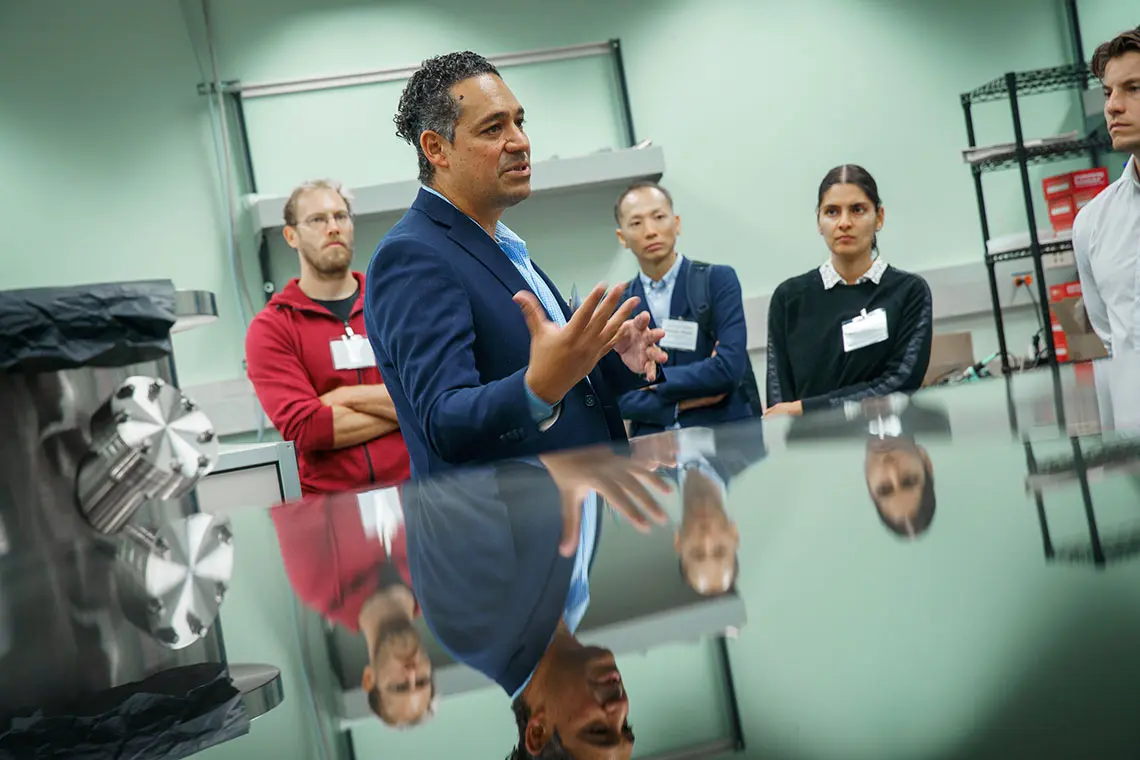
UC San Diego:
Vice Chancellor for Research Cori Peek-Asa; Albert P. Pisano, Jacobs School Dean and Special Adviser to the Chancellor; Javier Garay, Jacobs School Associate Dean for Research, Director of the UC San Diego Institute for Fusion Engineering, and mechanical engineering professor; Jan Kleissl, Director of the Center for Energy Research (CER), PI of UC San Diego DER Connect and mechanical engineering professor; Prabhakar R. Bandaru mechanical engineering professor; Mike Ferry, Research Director, CER; Yuanyuan Shi, electrical engineering professor; Dennis Abremski, executive director, Institute for the Global Entrepreneur (IGE); George Tynan, mechanical engineering professor; Farhat Beg, Co-director of the UC San Diego Institute for Fusion Engineering; UC San Diego Project Scientist Mathieu Bailly-Grandvaux; Elizabeth Langridge-Noti, Director for Global Research and Academic Programs, Global Initiatives and Miwako Waga, Senior Director for International Innovation Outreach, Office of Research and Innovation.
Kyoto University:
Satoshi Konishi, CEO & Chief Fusioneer, Kyoto Fusioneering Ltd. / Professor Emeritus, Kyoto University / Chair, Japan Fusion Energy Council (J-Fusion); Associate Professor Yoshihiko Susuki; Associate Professor Jun Hirotani; Professor Ken Umeno; Professor Shigeru Inagaki; and Koji Murota, Director-General, IAC.
Others:
Kazuki Matsuo, CEO, EX-Fusion Inc.; Tammy Ma, lead, Inertial Fusion Energy (IFE) Institutional Initiative at Lawrence Livermore National Laboratory; Professor Jaime Marian, University of California, Los Angeles; Associate Professor Keisuke Mukai, National Institute for Fusion Science (Japan); Research Scientist Clément Goyon, Lawrence Livermore National Laboratory; Yusaku Nakabeppu, Director, Japan Society for the Promotion of Science (JSPS) San Francisco Office; and Abigail Hughes, Liaison Officer, JSPS San Francisco Office.
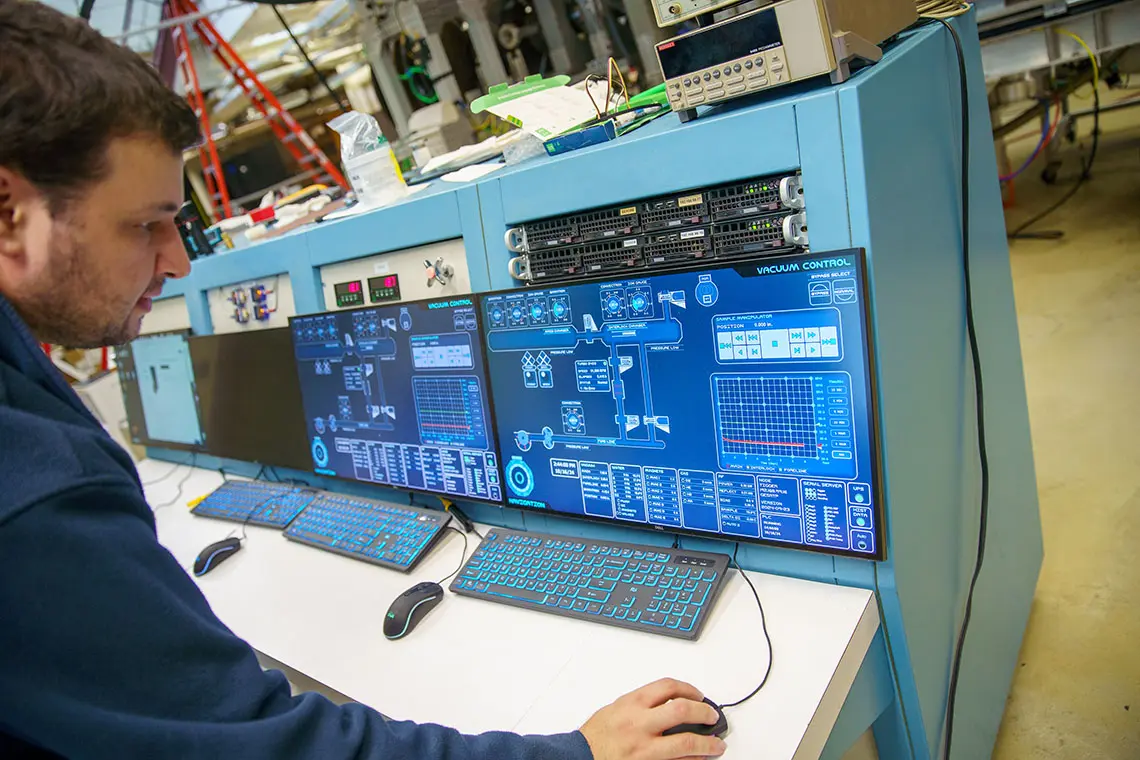
Share This:
Learn more about research and education at UC San Diego in: Climate Change
Stay in the Know
Keep up with all the latest from UC San Diego. Subscribe to the newsletter today.



